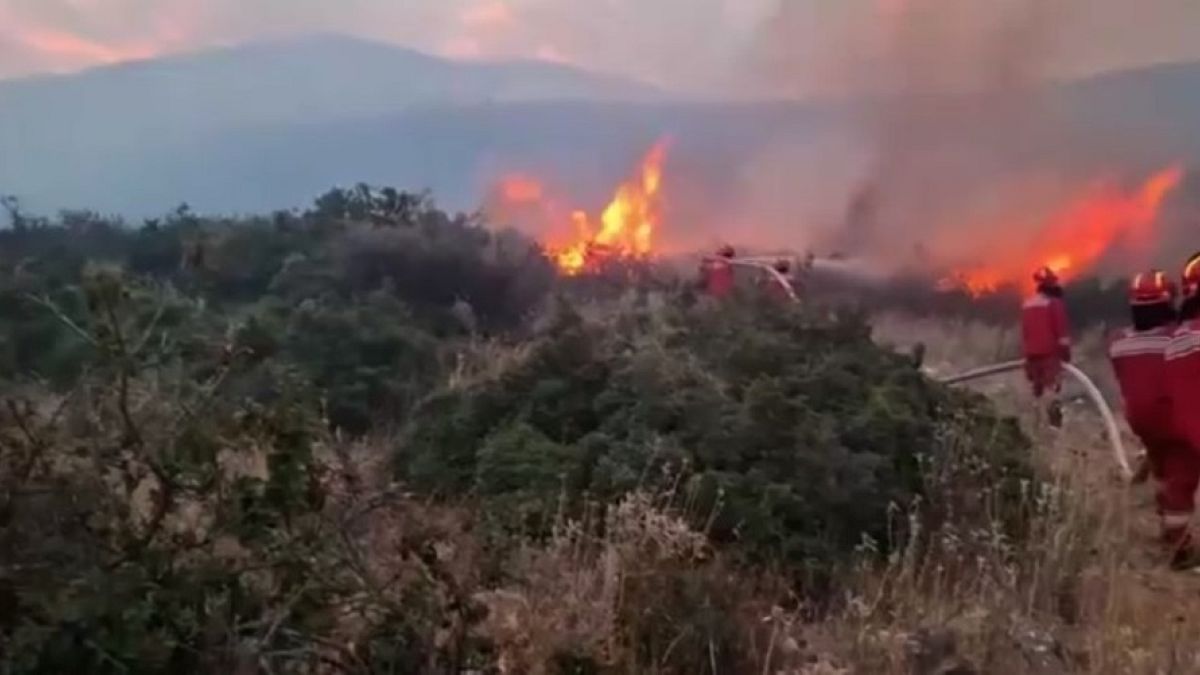

The past week has underscored the environmental challenges faced by various regions, with significant events affecting the landscapes and communities in Southern Europe and parts of Australia. Yet, amidst these challenges, there are growing efforts to embrace sustainable solutions and international cooperation.
In Southeast Europe, a scorching heatwave has strained both natural ecosystems and local populations. Temperatures in countries like Albania, Serbia, and Bulgaria reached extreme highs of 40°C (104°F), while Turkey recorded its highest-ever temperature of 50.5°C (122.9°F) in Silopi. However, a shift is on the horizon as a refreshing northerly airmass is expected to break the heatwave, bringing cooler temperatures and much-needed relief to these regions. This weather change will provide respite for residents and assist firefighters battling wildfires fueled by the intense heat.
Albania and Bulgaria have turned to the European Union for assistance in managing these wildfires, which have consumed thousands of acres and several homes. This call for help highlights the importance of regional cooperation and shared resources in addressing environmental catastrophes. The EU’s potential support will be crucial in mitigating the immediate impacts of the fires and providing resources for recovery and future prevention strategies.
Meanwhile, in the Iberian Peninsula, another environmental crisis is unfolding as the shores of Cádiz in southern Spain witness an invasion of Rugulopteryx okamurae, a resilient seaweed species from Southeast Asia. Thousands of tonnes of this invasive seaweed are threatening local biodiversity, raising alarms among ecologists. The accumulation of seaweed disrupts the marine environment, potentially affecting local fisheries and tourism. Addressing this challenge requires a concerted effort from local authorities and environmental organizations to develop management strategies that will preserve the delicate balance of the region’s ecosystems.
Across the globe in Australia, a mindful approach towards marine biodiversity is on display with a trial to remove shark nets from Sydney and Central Coast beaches. Experts have long argued that these nets, while intended to protect beachgoers from shark encounters, have been largely ineffective and have indiscriminately impacted marine life. The trial, supported by marine scientists, represents a significant step towards sustainable and ecological approaches to human-wildlife interactions. Efforts like these foster a deeper understanding of our ecosystems, encouraging the use of alternative measures that protect both humans and marine life.
In a broader context, global evidence suggests that our oceans are undergoing significant changes due to prolonged marine heatwaves, pushing them towards a potential tipping point. Scientists caution that this warmer state might become the ‘new normal,’ which could have far-reaching effects on marine biodiversity and weather patterns globally. These phenomena underscore the need for international collaboration and innovative approaches to cooling and preserving the world’s oceans.
Despite the challenges, these events inspire hope as individuals, communities, and governments rally together, aiming for sustainable solutions. By embracing cooperation, mindful practices, and ecological innovation, there remains a positive path forward in the stewardship of our precious natural environments. Through concerted global and regional efforts, humanity can work towards alleviating these environmental pressures and maintaining ecological balance.
Source: {link}
